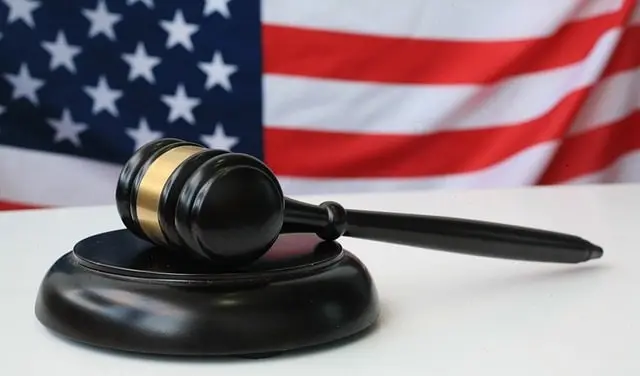Matthew Garrett, a former history professor at Bakersfield College, recently made headlines after settling a $2.4 million lawsuit with the Kern Community College District (KCCD). This case stemmed from allegations that Garrett was wrongfully terminated and retaliated against for exercising his First Amendment rights. The lawsuit, which revolved around free speech issues, DEI (Diversity, Equity, and Inclusion) initiatives, and accusations of financial misconduct, has sparked intense debate over academic freedom and administrative overreach within higher education. This article explores the key elements of the lawsuit, its implications for free speech on campus, and the broader impact it may have on the academic community.
Background: Garrett’s Role at Bakersfield College
Matthew Garrett was a tenured professor at Bakersfield College, part of the KCCD, where he taught history and was known for his outspoken conservative views. In 2019, Garrett criticized what he perceived as “partisan indoctrination” in non-credit courses, particularly one on the history of Cesar Chavez and the United Farm Worker Movement. He also raised concerns about the use of grant money for what he called social justice initiatives, which he believed advanced a political agenda rather than educational objectives.
Garrett’s critiques, aired during campus speeches and media appearances, quickly drew the ire of his colleagues. Professors Andrew Bond and Oliver Rosales, among others, filed complaints accusing Garrett of unprofessional conduct and alleging that his accusations bordered on financial impropriety. The KCCD hired an independent investigator, who supported these claims, resulting in disciplinary action against Garrett (GV Wire).
The Free Speech Controversy
Garrett, however, maintained that his actions were protected by the First Amendment, arguing that he was exercising his right to criticize institutional policies and express dissenting views. He claimed that the district’s actions amounted to retaliation for his political speech, leading him to file a federal lawsuit in 2021. Garrett argued that his critiques of DEI initiatives and other campus policies had made him a target for administrators who sought to silence him.
In particular, Garrett’s involvement with the Renegade Institute for Liberty (RIFL), a group he co-founded to promote “open discourse of diverse political ideas,” became a focal point of the controversy. RIFL’s members, including Garrett, were vocal critics of DEI programs on campus, which they believed stifled free speech and imposed ideological conformity. Garrett’s vocal opposition led to escalating tensions on campus, with some faculty members accusing him and RIFL of fostering division and promoting hate (The College Fix, GV Wire).
Legal Battle and Settlement
The lawsuit moved forward with claims that KCCD had violated Garrett’s civil rights, particularly his right to free speech. Garrett’s legal team contended that the district had retaliated against him not only through disciplinary action but also by recommending his termination without just cause.
In 2024, after years of legal wrangling, the KCCD settled the lawsuit by agreeing to pay Garrett $2.4 million in compensation. This settlement included $154,520 in back wages and medical benefits, and it also cleared Garrett’s disciplinary record. As part of the agreement, Garrett resigned from his position, bringing an end to his tenure at Bakersfield College (Just The News, College Fix).
KCCD maintained that the settlement was in the best interest of the district and that it would allow the institution to focus on providing quality education without further legal distractions. However, they denied that the dispute was related to free speech, framing it instead as a disciplinary matter tied to Garrett’s “disruptive” actions on campus (Just The News).
Implications for Academic Freedom and DEI Initiatives
The Garrett lawsuit has sparked considerable debate over the balance between free speech and the implementation of DEI programs in academic settings. On one hand, Garrett’s supporters argue that his case represents a victory for academic freedom, particularly for those who hold dissenting views on controversial topics like race, equity, and institutional policy. They contend that the settlement sends a message to administrators that retaliating against faculty for expressing unpopular opinions will not be tolerated (College Fix).
On the other hand, critics of Garrett argue that his actions were not about free speech but about undermining efforts to create a more inclusive campus environment. They claim that Garrett’s vocal opposition to DEI initiatives created hostility on campus and hindered progress on social justice issues. According to these critics, his settlement represents a financial burden on taxpayers for what they see as disruptive behavior rather than a defense of free expression (GV Wire).
Broader Impact and Future Developments
The Garrett case has had a chilling effect on debates over DEI programs at other institutions, as many faculty members now fear retaliation for expressing dissenting views. It also raises questions about how colleges and universities should handle conflicts between faculty members who have opposing perspectives on sensitive social issues.
Moving forward, Garrett has expressed his intention to remain involved in advocating for free speech and academic transparency. He plans to launch a social studies curriculum for homeschooling families and continue speaking out on issues related to campus politics and institutional governance (Ground News).
Conclusion
The $2.4 million settlement in the Matthew Garrett lawsuit highlights the ongoing tension between free speech and administrative control in higher education. While Garrett’s supporters view the settlement as a victory for academic freedom, his critics see it as a setback for efforts to promote inclusivity on campus. As debates over DEI programs and free speech continue to unfold, the Garrett case will likely serve as a key reference point in discussions about how colleges and universities navigate these complex and often contentious issues.


